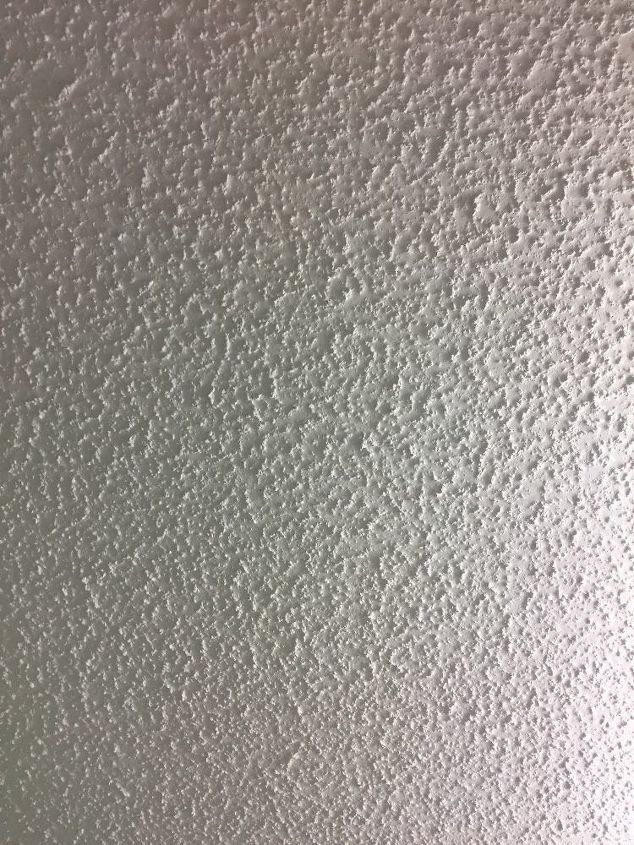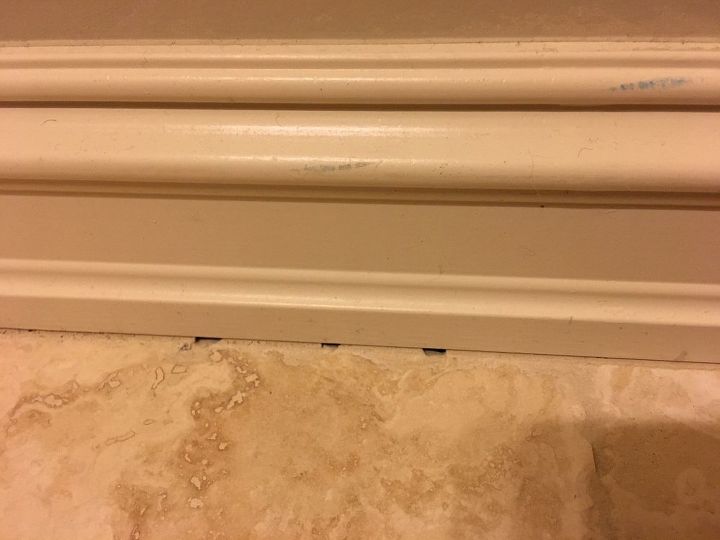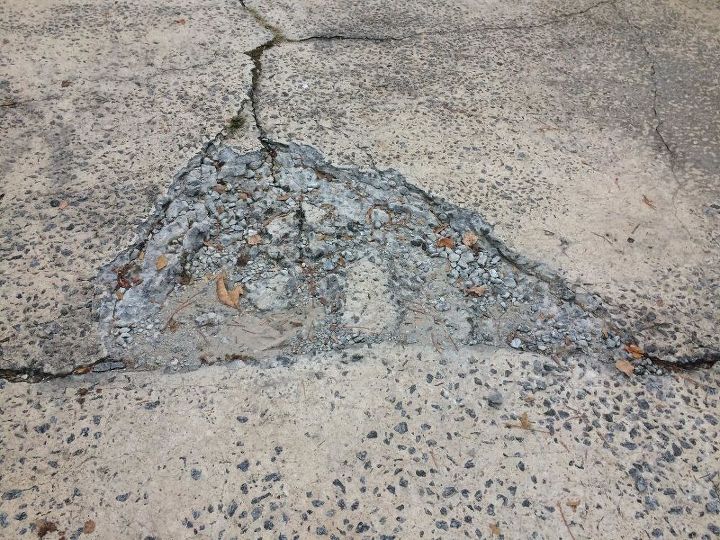What is the best product for patching a concrete driveway?

Which are the best products to patch narrow cracks in a concrete driveway ? And the best one for wider cracks?
Regards Noreen Edrich
Related Discussions
How to get rid of mice?
We seem to have some unwelcome Mickeys and Minnies in our house. What is the best way to get rid of them?
How to remove popcorn ceiling with asbestos?
I want to remove my popcorn ceiling, but it has asbestos in it. How do I go about this safely?
How to caulk baseboard gaps?
How do I fill gaps at baseboard, should I caulk? If so, does anyone know how to caulk baseboards?
How to fix squeaky hardwood floors?
How do I fix squeaky hardwood floors?
Repairing broken concrete patch on driveway
Any advice (products/process/etc) on patching/repairing this broken concrete patch on our driveway? Thank you!
What is the best way to hide cracks on a driveway?
I have cracks in my driveway which have been created over the years. I need to seal, or somehow hide them. At one time I saw someone stencil what looked like pavers o... See more





Quickrete makes a few products for this. For the wide cracks, you will need to install a backer rod first
https://www.walmart.com/ip/Concrete-Crack-Seal-Natural-1-Qt-By-Quikrete/515298770?wmlspartner=wlpa&selectedSellerId=13359&adid=22222222228125141605&wl0=&wl1=g&wl2=m&wl3=235322169090&wl4=pla-388736490141&wl5=9032296&wl6=&wl7=&wl8=&wl9=pla&wl10=117593843&wl11=online&wl12=515298770&wl13=&veh=sem
https://www.acehardware.com/departments/paint-and-supplies/caulk-and-sealants/caulk/5605266?x429=true&cid=CAPLA:G:Shopping_-_Catch_All&k_clickid=de28cfb8-e9b9-4415-812d-fb8c9279c912&gclid=CjwKCAjwwo7cBRBwEiwAMEoXPHPxpkYnJEW0xE5Fa0rm_K3UYaMdCQMMgbCO07t02zbEkFHE5E1w3hoClt0QAvD_BwE
Here is a link that might help you. https://www.hawker.com/13713270/concrete-repair-products-you- should-know-about
Correction on my link: https://www.hawker.com/13713270/concrete-repair-products-you-should-know-about
Topping Cement is Quality for Wide or Narrow Cracks that are not in bulk, for a driveway that leads to a garage.
However, I am willing to bet you [or a frequent guest] have a truck...
As that wears too and you encounter widespread cracks, and repeating cracks, usually encountered over 50 years of weathering, [or by persons who do want that fractured mosaic or cobblestone look and take a 10lb Sledgehammer to a Driveway or Walk], you then pry up they all, pull weeds, hose or pressure wash out any residual soils, treat it, place a pulverized stone as underlayment, dip the blocks in a bucket of vinegar and saltwater, distance all of these appropriately each, let they air dry, and then place either:
A. topping cement, 3 inch spacing
B. portland cement, 3 inch spacing
C. sand, 3/4 inch spacing
D. mortar, 1.5 inch spacing
between these alike you would do with individual gardening blocks, and then when that is cured you pressure wash it lastly to get rid of any very loose aggregates, and pollutions, before you can drive on it.
Explanation of the difference between a driveway and a 'parkway'...
The key to this 'spacing' is understanding that a 2 inch cube of concrete or cement is sturdy, but yet is not nearly as solid as same sized mortar enough to park a truck on it.
Reliant on vehicle(s) weights you may end up with
A. Mack Truck Equivalent
B. Large Truck Equivalent
circumstances where you are repeatedly patching over and over, because?
I. You did not space these as blocks far enough for the masonry to be solid enough for the vehicle(s) weights.
Ii. You abused the Driveway as a Parkway.
When that is so, you end up with a decision:
Do it yourself, by spacing, etc aforementioned?
Pour new slabs, yourself?
Cover it with Blacktop Asphalt?
Remove to put crushed stone or gravel between curbs?
Get a Mason or Contractor to assess what can be done?
And often this decision is:
We wish we would have taken the time to space it ourself, rather than waste the time, monies and efforts patching the old driveway, repeatedly to then do: (whichever, usually asphalt or gravel)
There is however a Lower Cost Comprimise you can do much sooner.
Which is often best observed by a stroll about the town to look at a building with an old loading dock, which always, because of the weight of the trucks on the walk, will reveal cracked cement.
Why is this so? The truck is beyond recommended walk/driveway maximum weight capacity.
Thus, the compromise is: if you have a truck, or multiple vehicles enough to arise truck equivalent you are best to park that truck or equivalent on gravel situated between two curbs, that is not unsightly when it breaks or cracks, and place that gravel or other crushed stone somewhere off of the driveway, rather than park the truck and/or equivalent on a driveway that is already showing signs of wear and cracking.
So many people just park a Truck on cement, but do not realize:
Driveway is called a driveway not a parkway. Parkway is inside the garage or seperate, and driveway is for moving vehicles only.
And then, In 15 years or less the weight of this truck or truck equivalent will bear on the cement enough to make it more unsightly than if you had parked that truck on a seperate driveway, made of gravel, placed between 2 curbs.
Thus you should understand the compromise for maintaining both Cement and a Truck with a Place to park is:
Any parking cannot do on a driveway.
Parking especially of 12 attendees to a kids birthday party or garden wedding cannot do on a driveway.
Parking should do on Crushed stone, which is not unsightly when it cracks.
To maintain crushed stone staying in any area designated for parking requires a curb around where that crushed stone is intended to place is of need.
It is far easier to maintain sightliness of Cracked Crush stone than it is to maintain sightliness of a Cracked Cement.
If you want an asphalt jungle, pour it not over cement, but instead over crushed stone.